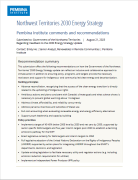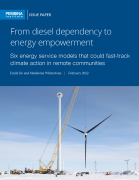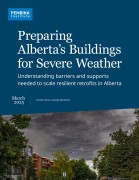The Pembina Institute, in collaboration with others in the Oilsands Environmental Coalition (OSEC), has maintained a longstanding engagement in working for environmental protection limits and controls to oilsands development, with a particular focus on the management of emissions of air pollutants. The Institute has written this paper in the interests of advancing understanding of the urgent need to establish a mechanism to manage cumulative impacts on the boreal forest of northeastern Alberta. At present, regulators are assessing oilsands projects as well as conventional oil and gas projects on a project-by-project basis. These approvals are being granted without an understanding of the impacts of existing industrial activity on the broader boreal forest ecosystem, or the environmental implications of further disturbance to this ecosystem from rapid developments in heavy and conventional fossil fuel reserves in the region. Lacking a comprehensive context and overall policy framework to guide development decisions, the province is establishing de facto policy on an incremental project-by-project basis.
This paper provides an overview of the environmental impacts that are already occurring from existing industrial activities as well as the potential cumulative impacts of new in-situ oilsands development. It outlines the elements of a "Boreal Forest Use Framework" that could assist in managing industrial activity within the limits of ecological sustainability. The possibility of increased confrontation and market-based actions as a consequence of inaction by industry and government are reviewed and recommendations are made for specific actions that need to be taken by government and industry, including actions by individual corporations.








